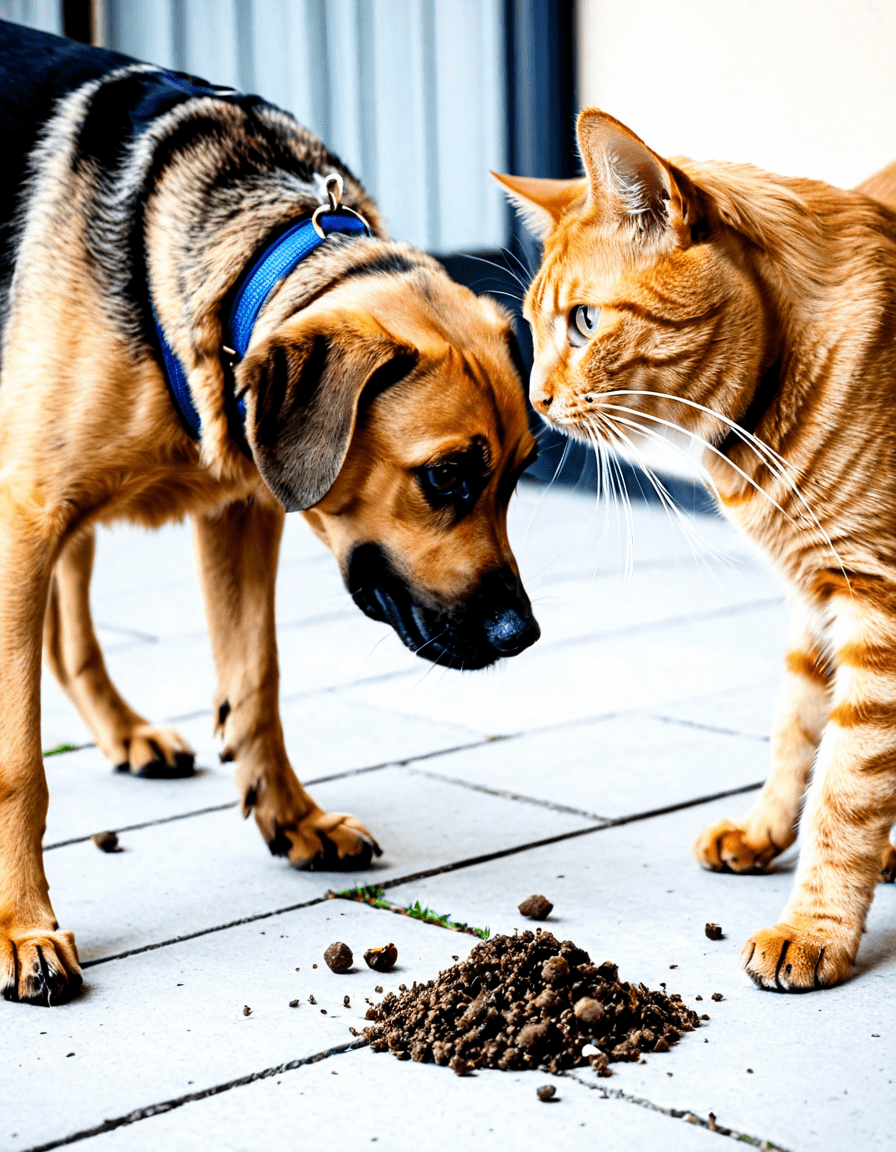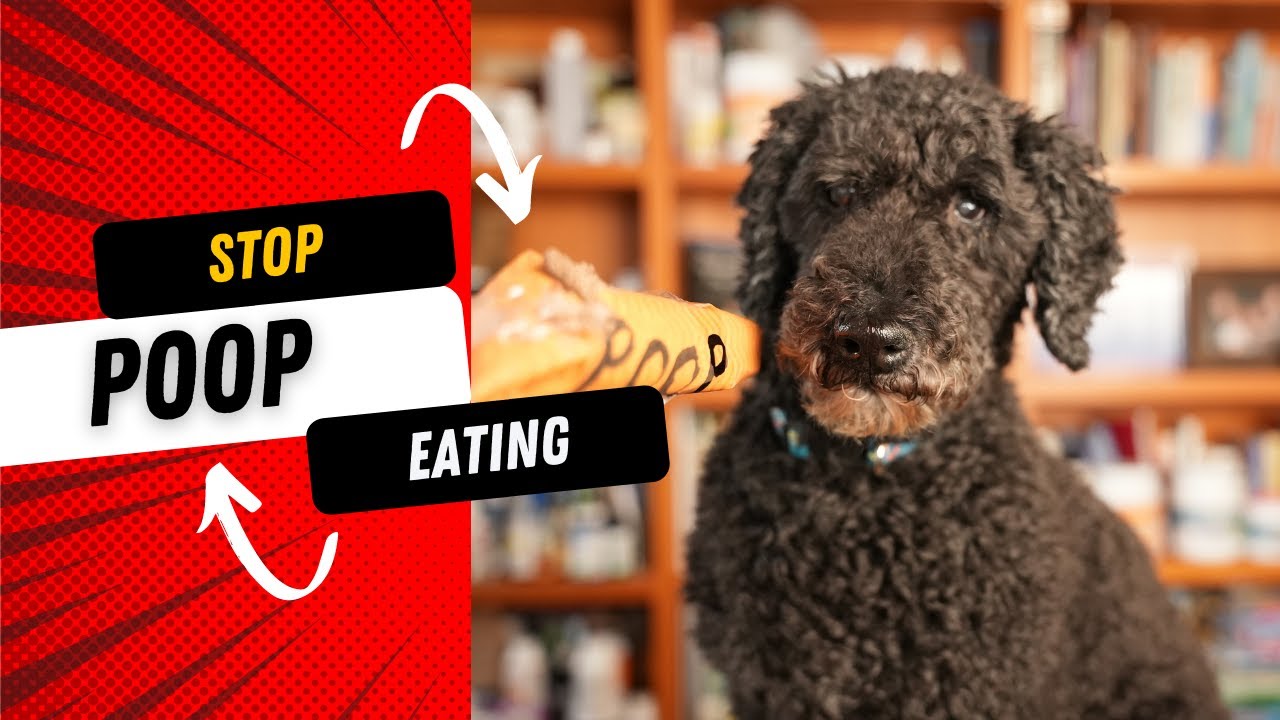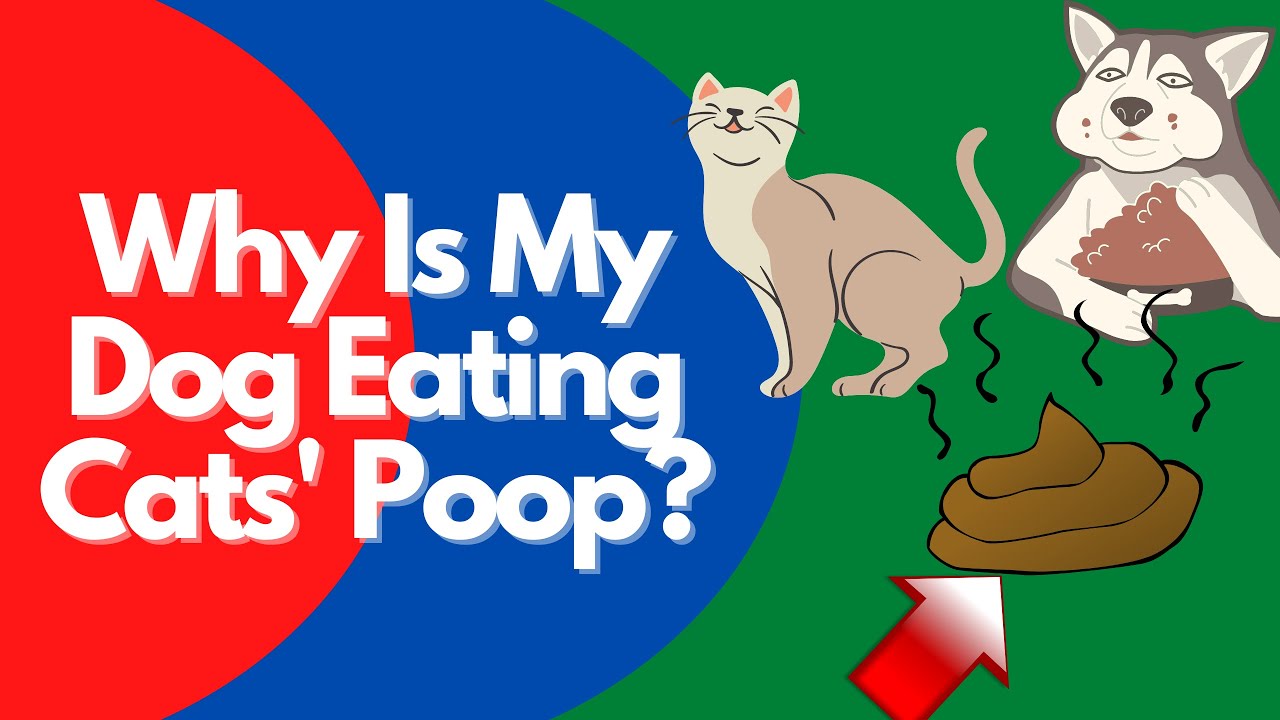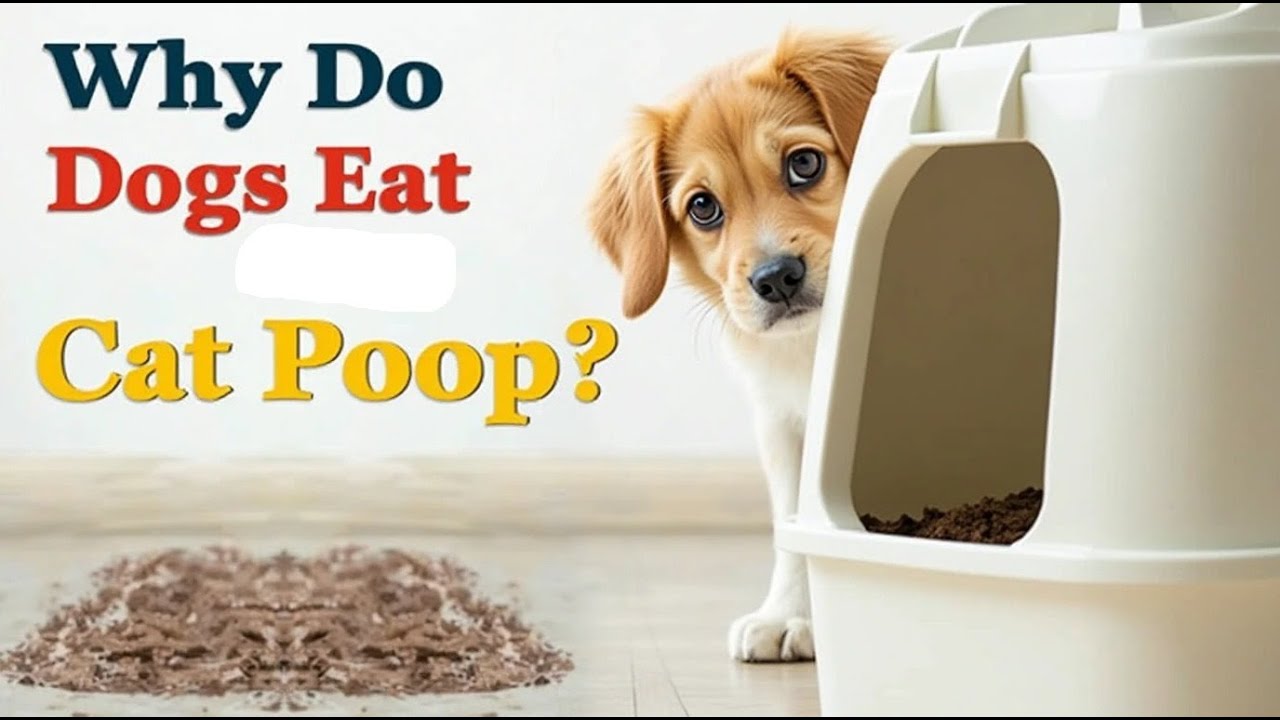Understanding why dogs eat cat faeces, or coprophagia, is a head-scratcher for many pet owners. It’s gross and alarming when you discover your pup has a taste for kitty droppings, but believe it or not, this behavior can stem from various reasons. Knowing why do dogs eat cat turds isn’t just about quelling your disgust; it’s about ensuring your furry friend remains healthy. Let’s explore this phenomenon in detail, shedding light on the factors that may contribute to such behavior.
## Why Do Dogs Eat Cat Faeces? Here’s What to Know
1. Nutritional Deficiency
One leading cause of this behavior is a nutritional deficiency. Dogs may find cat feces appealing because it often contains higher levels of protein and fat compared to standard dog food. Many commercial dog foods, such as Royal Canin and Hill’s Science Diet, are designed to meet a dog’s nutritional needs. However, if your dog is not getting enough calories or essential nutrients, they might resort to dining on cat droppings as an alternative source of nutrition.
2. Smell and Taste Appeal
Why does my dog eat cat faeces? The answer lies in their incredible olfactory sense. Dogs possess more than 300 million smell receptors, while humans only have around 5 million. The scent of cat feces—filled with undigested food and certain acids—can be downright irresistible, especially for pups fed bland diets. If you’ve ever caught your dog indulging in cat poop, they might just be following their nose.
3. Behavioral Instincts
Many dogs inherit scavenging instincts from their ancestors. In the wild, canines consume feces to keep their dens clean and to avoid detection by predators. This instinctual behavior persists in domesticated dogs, leading them to consume feces from other animals. It’s natural for your pup to act on these built-in tendencies, even if it makes you cringe.
4. Curiosity and Boredom
Dogs are naturally curious creatures, and when they’re bored, they often resort to unusual behaviors like eating cat feces. If your dog doesn’t have sufficient physical or mental stimulation, they might engage in these oddities. Providing engaging toys, interactive feeders, or regular training can keep your dog from becoming a feline waste connoisseur.
5. Attention-Seeking Behavior
Want to know why do dogs eat cat poop? Sometimes, it boils down to attention-seeking. Dogs thrive on interaction with their owners, and if they get a reaction—negative or positive—every time they munch on cat droppings, it may reinforce the behavior. Essentially, your disgruntled response could inadvertently teach your dog that coprophagia gets them attention.
6. Imitating Other Animals
Social learning plays a significant role in why does my dog eat cat faeces. If your dog observes another pet, such as a cat, partaking in this behavior, they may mimic it. This is particularly common in multi-pet households where dogs learn by watching their feline counterparts.
7. Health Issues
In some cases, health issues can contribute to coprophagia. Conditions like diabetes, parasites, or malabsorption can make a dog feel nutrient-deficient, driving them to seek nutrients from feces. Regular veterinary check-ups are crucial. If you suspect health issues, consulting a vet can help identify any underlying problems.
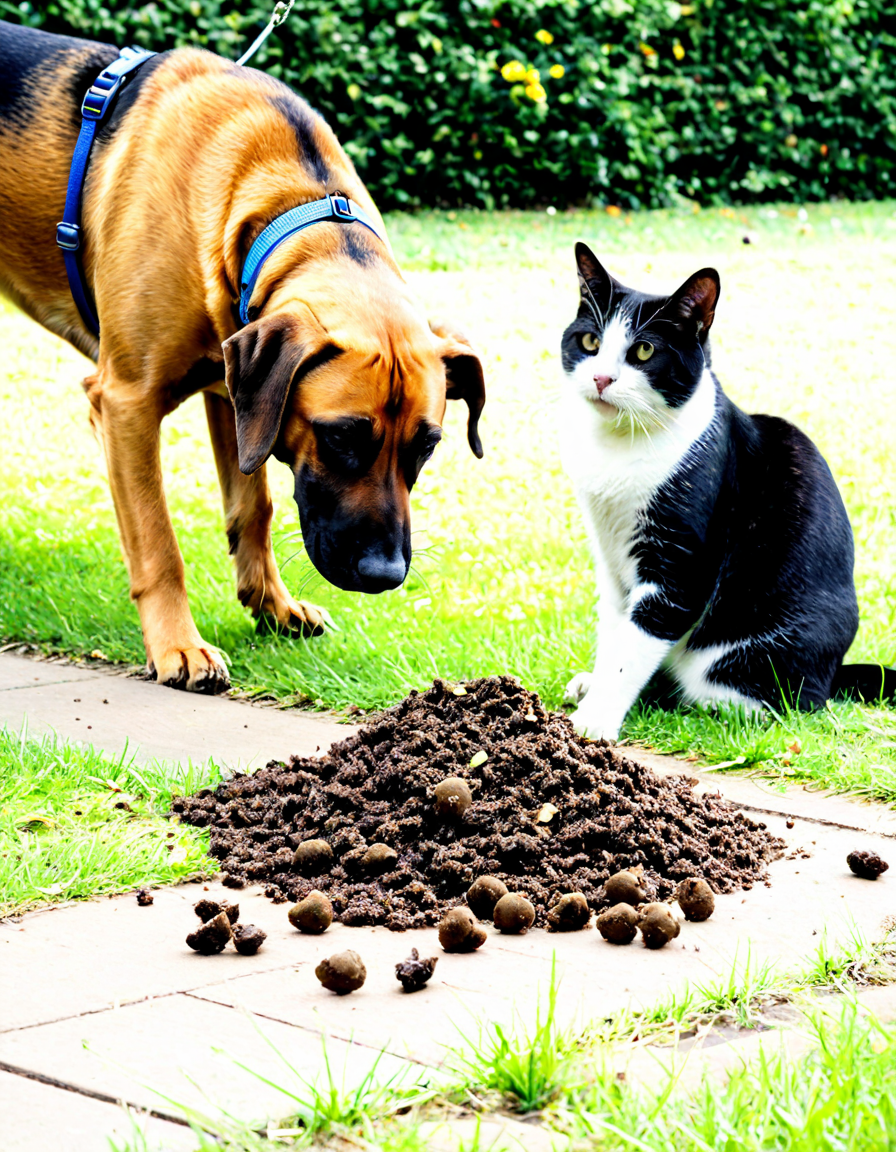
Why Would a Dog Eat Fertilizer?
Another concerning behavior seen in some dogs is the consumption of fertilizer. It can be enticing due to its rich nutrient content. Many fertilizers contain nitrogen, phosphorus, and potassium, attractive elements to dogs. Unfortunately, some fertilizers are toxic, leading to serious health issues if ingested. Always opt for organic alternatives to minimize risks and keep your pet safe.
Does Food Coloring Irritate Dogs’ Skin?
Another aspect to consider is additives in your dog’s diet, such as food coloring. Certain artificial dyes can result in skin irritation or digestive upset for dogs. If your furry friend indulges in cat feces high in synthetic colors, this might cause issues. It’s important to read ingredient labels carefully when selecting pet food to avoid harmful effects.
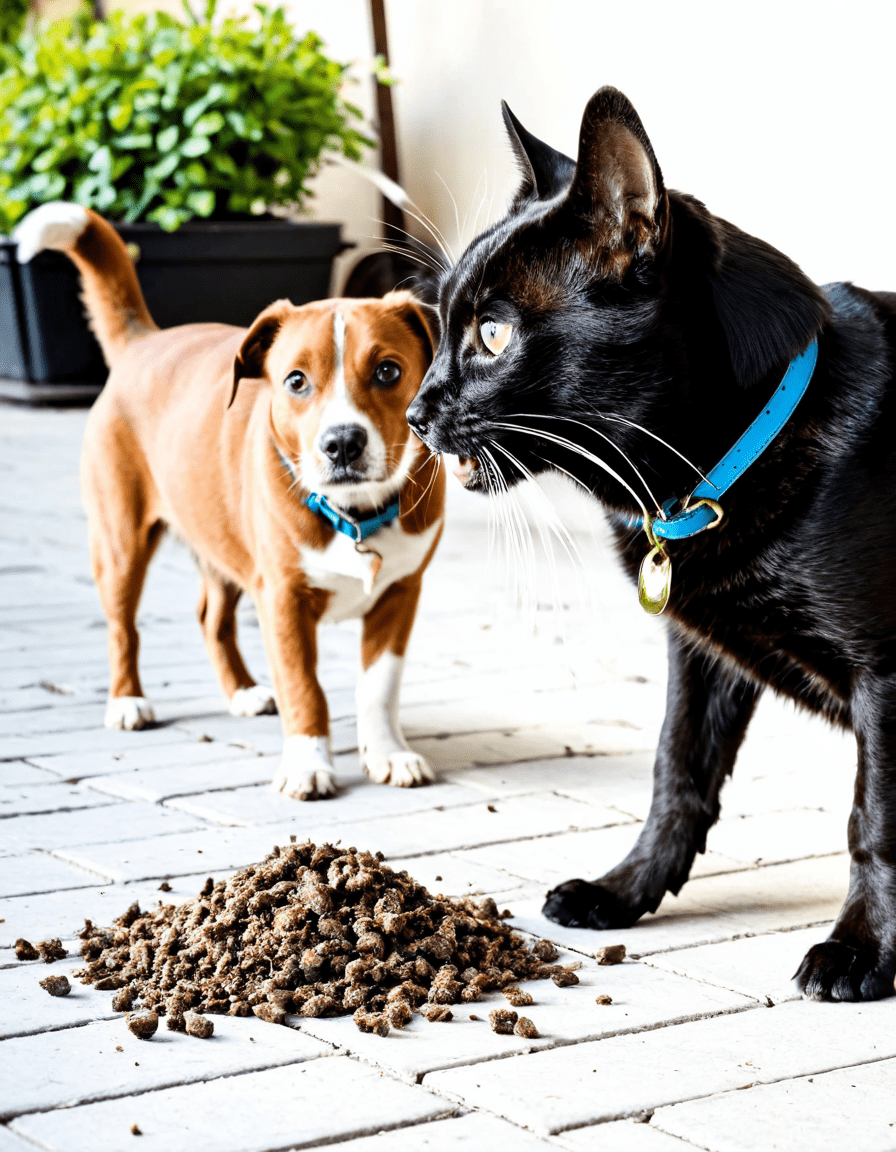
When Horses Eat Opossum Feces, What Do They Eat?
While the discussion usually centers on dogs, other animals also partake in coprophagia, such as horses. Occasionally, they’ll consume droppings from opportunistic rodents, including opossums. Like dogs, horses may be seeking extra nutrients or merely acting on instinct. This broadens the understanding of feces consumption across various species.
Final Thoughts
It’s important to recognize that while coprophagia is an off-putting behavior, it can arise from multiple motivations—including nutritional needs and instinct. Identifying what drives your dog to consume cat feces often requires close observation and possibly a conversation with your veterinarian. Feeding your dog a balanced diet and providing mental and physical activity can help curb this behavior. Open communication with your vet can ensure a happy, healthy life for your beloved pet.
In the end, knowing why do dogs eat cat faeces and understanding the underlying reasons can help you mitigate this behavior and keep your furry friend healthy and happy!
Why Do Dogs Eat Cat Faeces?
When you’re left pondering why do dogs eat cat faeces, you might be surprised to learn that it’s a behavior known as coprophagia. This peculiar habit can stem from various reasons, from instinctual drives to simple dietary quirks. For starters, some dogs may be drawn to the smell or taste of cat droppings, which can have a higher protein content than their regular kibble. It’s like finding a hidden treasure! Speaking of unexpected discoveries, if you were to find a lump on your dog’s neck the size of a golf ball overnight, you’d want to check out some guidance on that, too—often related to digestive issues.
Natural Instincts at Play
Digging deeper into the reasons behind this behavior, it’s important to understand that dogs are, at their core, scavengers. This instinct can often lead them to consume things that seem less than appetizing to humans. You might think it’s gross, but for dogs, it’s often just a part of their natural scavenging behavior. While they’re exploring their environment, it’s similar to a child finding interest in a shiny coin—it’s all about the discovery! Interestingly enough, a dog eating cat faeces can sometimes point to nutritional deficiencies. Just like horses need regular care and proper equine Vaccines, dogs also thrive better with a balanced diet.
Training the Behavior Away
Now, if this behavior becomes a concern, dog owners just like you might be eager to learn training tips to discourage it. Using a firm “no” and redirecting their attention to something more acceptable can go a long way. Plus, keeping litter boxes out of reach can help—think of it as putting away the toys. Just as pop culture references, such as the Mamma Mia! Here We Go Again cast highlight quirky choices, your pup needs guidance to make the right selections too! Don’t forget about the occasional mind-boggling fact: turtles possess an unusual anatomy, including a turtle penis, which is just a reminder of how diverse life is.
In the grand scheme of pet ownership, understanding why do dogs eat cat faeces can help you create a healthier environment. You’ll not only appease your curiosity but also enhance your dog’s well-being. Remember to remain vigilant, as even small changes, like considering whether table salt could kill fleas, can make a big difference in keeping your furry friend healthy and content!
